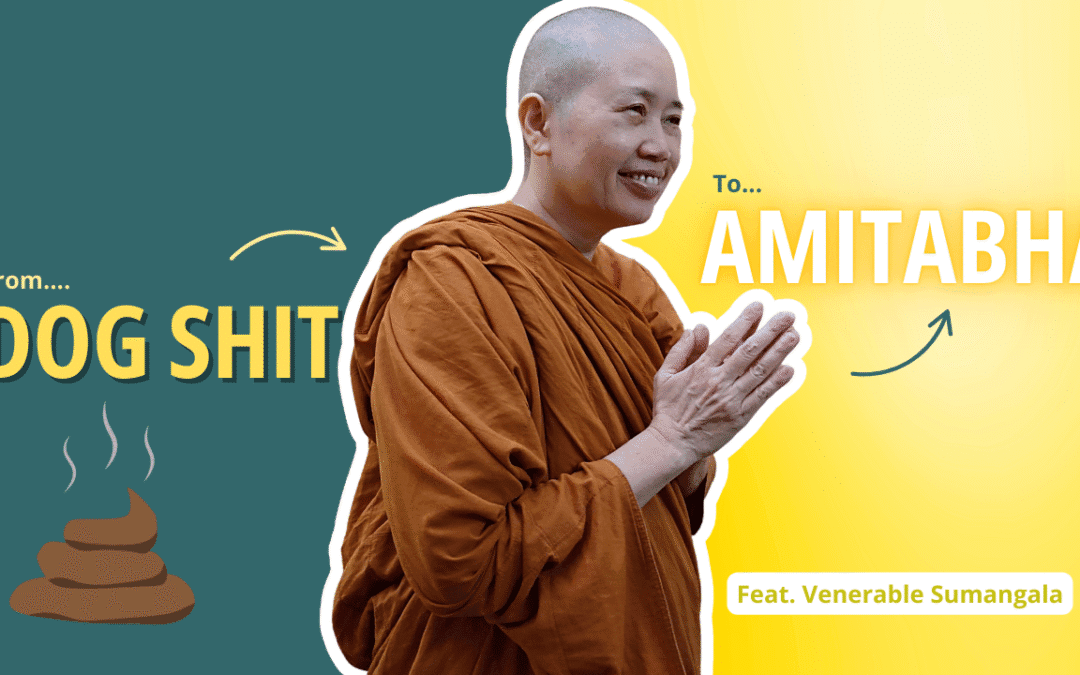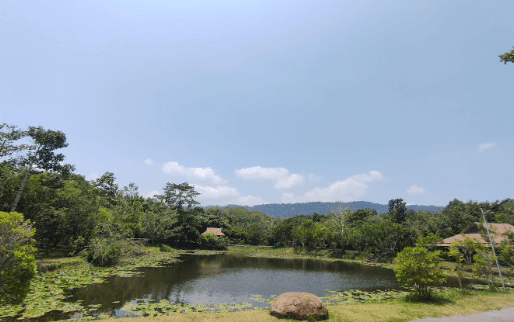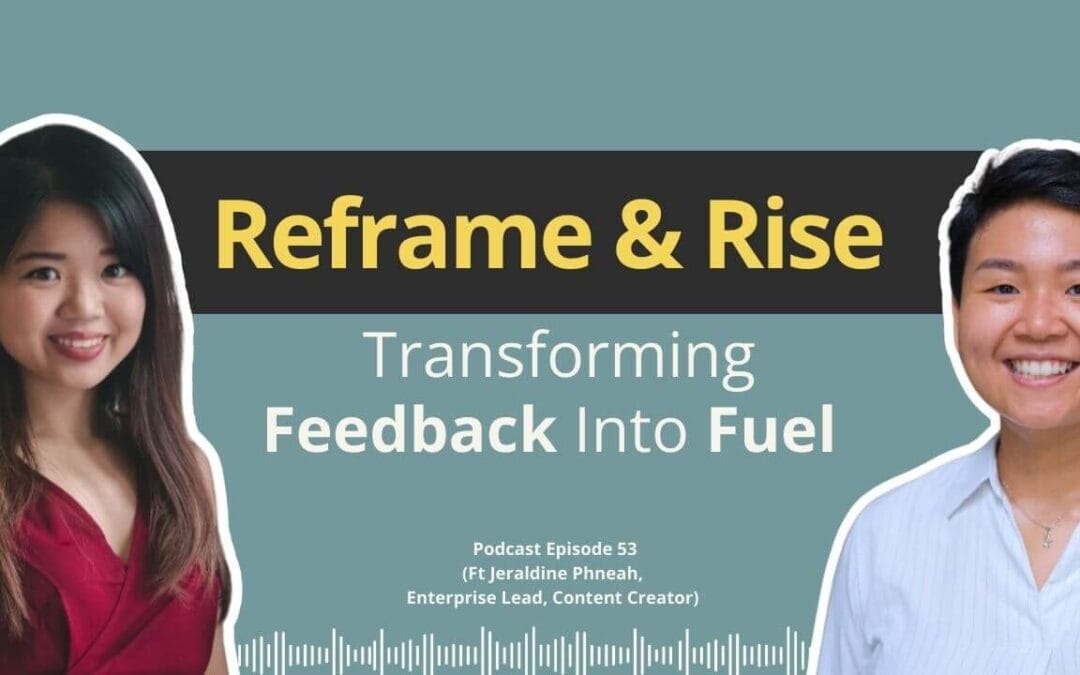In this podcast episode, Jeraldine, a top tech sales leader and content creator, shares her journey of navigating unfair criticism and how she has learned to manage it constructively. She discusses a particularly painful experience when she was unfairly compared to another woman in an online forum based on appearance, leading her to question her self-worth. Over time, Jeraldine has developed strategies to manage criticism, maintain self-esteem, and practice forgiveness. She emphasises the importance of emotional regulation, loving-kindness, and cultivating healthy relationships in response to negative feedback. Jeraldine also shares insights on how to balance personal growth with standing up for oneself.
Jeraldine Phneah is a Singaporean tech sales professional and content creator, passionate about helping others become the best versions of themselves in their careers, finances, health, and relationships. Through her own journey, she shares practical, actionable solutions to alleviate the pressures of modern life. Listed as one of LinkedIn’s Top Voices in Singapore, Jeraldine has been featured in prominent media outlets such as Channel News Asia, Dollars & Sense, and Her World. She has also spoken at high-profile events, including the YWLC/Grab Future Women Leaders Forum 2022, E27 Echelon Asia Summit 2023, and the Endowus Wealthtech Conference 2023. In her professional role, Jeraldine works at an AI SaaS startup, where she focuses on scaling their business across the APAC region.
Jeraldine reflects on how to use criticism as a means of personal growth rather than letting it undermine your self-esteem. Instead of reacting impulsively, she suggests acknowledging your emotions, reflecting on the core message of the feedback, and deciding whether it holds value for self-improvement. Healthy self-esteem is essential for navigating criticism without losing your sense of self.
One of Jeraldine’s learning point is the practice of extending loving-kindness even toward those who criticise or hurt us. She shares the importance of forgiveness, not as a sign of weakness, but as a way to release personal suffering and foster emotional well-being. By detaching from emotions and empathising with others, she is able to better maintain peace in the face of unfairness.
Jeraldine underscores the role of supportive relationships in building resilience against criticism. Close friends and family help provide a grounding perspective, buffer against negative feedback, and offer constructive advice. This network helps maintain a balanced view of yourself, preventing you from internalizing harmful opinions from others.
Full Transcript
[00:00:00] I was putting all this effort to research, to write, to create, like, good content and then people will just focus on like, is she pretty or not.
[00:00:10] There are two types of people, those who let criticism crush them and those who use it as fuel. Today, you’ll learn how to become the second type. Imagine waking up to find strangers on the internet debating on whether you’re attractive enough to deserve success. This happened to my guest last year.
[00:00:29] She’s a top tech sales leader and content creator who thought she was prepared for everything, until a single forum post changed everything. But this isn’t just another story about internet hate. In this video, you’ll learn how to reframe your critics, stop emotional spirals, and find valuable lessons in forgiveness.
[00:00:49] This conversation changed how I view criticism forever. I think it might do the same for you. Hello, welcome to the Handful of Leaves podcast. My name is Cheryl, the host of the podcast. If you look around us, we are in a very beautiful studio and this is called the Thought Partners Studio. So I’ll share a little bit more about this studio.
[00:01:09] This is all about fostering creativity and wellness in a workspace designed for growth. From yoga sessions to art exhibitions, Thought Partners offers a space where innovation thrives. So you can come here to book a studio, use it for whatever needs that you want. Yeah, and check out their website.
[00:01:27] And today I have Jeraldine who will be our guest. My name is Jeraldine. I create content around growth and specifically on topics such as wealth, health, and relationships. Can you share with us a fun fact about yourself? I guess what many people do not know about me is that my day job is actually in the software as a service sector where I do sales.
[00:01:48] I interned at a Hong Kong news outlet and worked in Hong Kong for a while as well. I wanted a job that gave me a certain level of autonomy and freedom while being able to fulfil the wealth part of it. So today we are talking about unfairness. Yeah. I think I would love to understand what is unfairness to you and specifically to what extent you would consider something is unfair.
[00:02:13] I guess, wow, this is the first time I’ve been asked this question about what unfairness is. A common definition would be more like you did something with the expectation of something in return but then that was not what was given to you. Okay, would you be able to share a specific moment where you felt people were unfair to you in terms of their criticism?
[00:02:34] You know, the most memorable one is actually a forum post. They put me and another woman side by side to compare, like, who is prettier. Wow. And I think at that point in time, I felt really unhappy because I was putting all this effort to research, to write, to create like good content and then people will just focus on like, “Is she pretty or not?”.
[00:02:53] Of course, I am not unrealistic to think that like, appearance doesn’t play a part in anything in life. In fact, I feel that, you know, personal grooming is really, but for it to have such a massive weightage at that point in time, was something that I was unhappy with. Yeah, and that set me on a road to, a insecure kind of like path, right?
[00:03:12] Because I will constantly be afraid of and self conscious about how I look like. I changed the way I dress and I even adjusted my voice to be able to speak in a tonality that is much lower versus like what it originally sounded like. So all these changes that I adjusted to make was hopefully to be more presentable to the public and I did my best for it.
[00:03:34] And even so, I still got criticisms in the end and that made me realize that like, hey, there’s no way to please everyone. Oh, yeah. There’s no way to please every single person. We still get a lot of our validation, our self esteem from what other people say. How do you manage the balance between pleasing others and finding the inner strength?
[00:03:53] I guess it begins first with the mindset, right? Of viewing yourself not as something that is a fixed individual, a fixed identity, someone that is growing and evolving, you know? So when you receive criticism, the first instinct is to disregard it entirely, like, and to react emotionally.
[00:04:12] Yes. But what I would like to do is, of course, first acknowledge that, hey, there is unhappy feelings when I receive criticisms like this. Because nobody likes to receive criticism, right? We love the praise. We hate the blame. Yes, correct. But this is an inevitable part of life. Recognising my emotions is the first step.
[00:04:32] And then secondly, look at the message, try to distill it down beyond the emotional writing to what is the core message really about. Then reflect on it and determine like, hey, to what extent, you know, is this really true? Like for instance, when I receive bad comments that I was fat-shaming other people, I really had a long think about it.
[00:04:55] And I read through my content in detail to try to understand, like, was there any part that I could have written better? So that, that reflection is a very important step. So this balancing, like the message you receive, right, and thinking about how you can be a better person. But at the same time, there’s also a fundamental layer of self esteem that I believe that everyone should strive to have, especially if you are a creator, because without that, you would end up not having boundaries and just like cave into whatever people want. What does a healthy self esteem mean to you? A healthy self esteem in this particular context means that you are able to hear criticisms, right?
[00:05:34] Acknowledge them, reflect upon it. You know, and determine or not whether this is something that is good for you or not, and then act on it accordingly. How to go about doing that, that’s something that only you can give yourself. First of all, acknowledging your own strengths. And I guess for me personally, that’s something that I’m still working on, right?
[00:05:55] Acknowledging my own strengths, building up that whole “What am I good at? What makes me a good person”, for example. And then, of course, the second part of it is to cultivate healthy relationships that can continually give you that feedback. So that would help you recognise that, hey, there’s a reality of the world that I live in with my close friends and family that is different from what is outside.
[00:06:15] And they can also provide that grounding factor as well that reminds you of who you are without all of this branding image. Yes, correct. Relationship is a, I would say it’s a buffer because they amplify your happiness during good times, right? Like I feel happy when my friends attend my panels, you know, and help me to do filming and all that.
[00:06:36] And that really elevates the happiness of being on stage. At the same time, they are also a strong buffer against criticism. Let’s say for example, the criticism is like, they hit you with 100 points for example. But because you have the support of your friends and family, you can actually drastically reduce them because you have people to talk to who can nurture you, who can give you that kind of like love, protection and also feedback as well.
[00:07:01] Yes. And I want to dive a little bit deeper into that. Especially I think on the first point that you shared on, you know, just managing your emotions, when you first receive all of these things. What are the steps that you take to try to regulate your emotions? I remind myself every time I react on emotions, right?
[00:07:21] It’s always a very bad idea. Like I will regret the things that I say. So I remind myself to take a break first. At the same time, it’s also important to detach from the feeling of emotion. So you recognise that, hey, there is grief. There is like unhappiness. There is stress. There’s frustration. But you don’t like take that as part of you.
[00:07:42] Recognise that it’s a passing emotion. Because as with every feeling, they will come and then they will go, just like the waves. And just to add on to that, you know, the Buddha teaches the four foundations of mindfulness, and one of the first foundation is actually the mindfulness of the body.
[00:07:56] So whenever we feel, for example, frustration building up, we can pay attention to the sensations, like where is it in your chest? How are you? How’s your face feeling? The temperature rising and that helps us to become, like you mentioned, a little bit distant or detached, rather than being completely caught up in the emotions.
[00:08:16] Yeah. And I think another very cool tip: the Buddha also shares that, you know, whenever people are being unkind to us, what we can do is to maintain a mind of loving kindness. So what that means is that we still wish for ourselves to be well, to be at ease, and then wishing the person to still be kind and happy as well.
[00:08:37] Yeah, and there’s a monk that also shared that actually the people that give us feedback, they are giving us the best gift. When you take the time to evaluate how can I improve, what is relevant. Then that is really a gift for yourself to become a better person. I think what we generally love is that, cause like, you know, we’re not deities, right?
[00:09:00] We love praise. We hate blame. So sometimes we may unconsciously surround ourselves with people who tell us what we want to hear. Yes. And then we will never grow. Yeah. So when we have someone who’s courageous enough to come and tell you, “you suck!”. Then we’ll be like, “thank you. Why?” Just a couple of weeks ago, I had like a feedback session with my boss about what’s working, what’s not working and… Sounds stressful.
[00:09:25] And I think the feedback he gave me about how I can communicate better was definitely something that was very valuable. I started to apply. Yeah. Because after he told me about the things I need to improve, I came up with like an action plan, right? But there are things that I can do to make steps in that right direction.
[00:09:42] And after applying those tips for a few weeks or so, I did see some positive feedback from other people. Your second point about having a loving kindness towards someone who is giving you that feedback is also very valid because if it comes from a good place, that person is actually taking the courage to risk even like your relationship, right?
[00:10:03] To share with you something that is really important and that shows you how much they care. And if it comes from a bad place, like they’re just like an angry person online trying to hurt you and all that, you have to also extend the kindness towards them because it is not… if someone is not hurting, they won’t hurt others.
[00:10:21] So similarly, if someone who is angry, unpleasant, the people around them may not like them very much. They also have to endure their own harsh inner critic that will always be popping up at themselves as well. So hence, we can develop that loving kindness by expanding our perspective to see that they are actually hurting by being mean and unkind.
[00:10:43] So yeah, yeah. And while we maintain loving kindness towards people, I’m also curious about your thoughts on this. How do you know when to let things go and balance that with standing up for yourself? I guess the first thing is really to look at the validity of the criticism itself. Like to what extent is this true?
[00:11:06] So for example, in my recent feedback with my boss, I felt that a lot of the things that he did share were true and accurate, which prompted me to quickly take action to resolve them. And the second thing that I care about is does this criticism come from a person that is worthy to give it.
[00:11:23] So the Buddha said that, you know, when we want to share criticism with others, the first thing that we want to do is to check ourselves. Do we have the faults that we want to criticise the person for? Then the second thing is about the timeliness. So when do we tell the person? Whether they are very emotional, very upset, or you tell them at a point where, you know, they have calmed down a little bit and they become more receptive as well.
[00:11:46] Then the third piece is, of course, is it based on truthfulness, whether you’re saying based on facts or your perception. Because facts and perception can be wildly different, especially when we’re coloured by whatever biases that we have towards the person. The tone that we share to the person, because when you mention intention, right, sometimes intention we really cannot tell.
[00:12:10] But one way that we can also know is through the way, the gentleness, which they convey the message, right? Are they using a kind tone, a gentle tone, or are they like, you know, a kind of point finger tone? So, that’s one way. And then the final way is whether it’s beneficial or not. Right. So it aligns very much with what you say, like you check yourself, you do your own self awareness and say, Hmm, will it really help me to improve?
[00:12:35] That’s why I think there’s a lot of wisdom which aligns with the Buddha’s teaching that you shared and that’s amazing. So we’ll move on to one final part of about maybe the idea of forgiveness. Have you experienced difficulty in forgiving people who are unfair to you? Many times. Okay. Yeah.
[00:12:56] And I guess it’s just human, right? I’m sure that, you know, if anyone watching this is like, Oh, I have no problem with this at all. They are not being the most… don’t lie. So, yeah, I do experience that. And it’s sometimes like when you, you know, people are treating you unfairly, you know, or being unkind to you there is a tendency to hold the unhappiness and grudge.
[00:13:18] A while back, something happened in my work whereby there was another colleague from the sales team, another sales team who actually took a deal that was meant to be mine and she actually won the deal very quickly because it was an inbound request. The final outcome was that, you know, after I found out and petitioned for it to be written to me was that she would get 30 percent and I’ll get 70 percent and that caused me a lot of frustration for a period of time.
[00:13:44] So I was very unhappy for a period of time also, and I met my close friend from school for lunch. And you see something really wise, right? You know, she has already taken 30 percent of the deal. Why do you let her take away your happiness as well? It’s powerful. Yeah. And that made me realise that like, by bearing grudges too much, I’m actually suffering.
[00:14:08] Yeah. So rather than holding on to that unhappiness, why don’t I just let it go and move forward? The second thing to think about when it comes to this type of like incidents is really to check yourself as well, because I’m not perfect also, yeah, and, you know, definitely there will be times in my career where I let other people down and all that.
[00:14:31] So if I, am not 100 percent flawless then who am I to actually judge the other person? And I guess the final part is actually really to extend compassion towards them also, because sometimes when you see someone behaving in a way that is not the best, often it is because it comes from a place of fear, anxiety, and probably she was going through a lot of stresses at that point in time as well.
[00:14:56] So looking at these things holistically has helped me to really let go. It’s not always easy and I still struggle a bit but I try to follow these principles. And I’ll just share a perspective from a psychologist actually. So this psychologist, she developed this model called the REACH model to help people to foster forgiveness because I think forgiveness is truly a practice, a commitment, and a ritual that we need to do because it’s so easy to step back to like, “That woman, yeah, stole my deal.” Yeah, right.
[00:15:26] So the first, first part of REACH is called R, recall the hurt. Meaning to really be honest with how much their actions, their speech, their behaviour have affected you. Right. That also means you avoid seeing yourself as a victim or the other person as a villain, allowing yourself to just experience that emotion through the body sensations and emotions.
[00:15:50] Then second is E, empathise, which is what you say, you know, kind of empathising the person and seeing what they’re going through. And a lot of times people who hurt us may not, may not ask for forgiveness. So this part is crucial also where we imagine The person explaining the actions asking for forgiveness and trying to connect with you.
[00:16:12] Then A is altruistic gift. So this is referring to imagining your forgiveness as a gift to yourself, right? You know, you don’t allow yourself to be hurt again by the person and also imagine that as a gift to the person. So I give you my forgiveness and that really can bring a sense of relief and prevent further disappointment on your end.
[00:16:36] And C, commitment is really writing down your commitments or telling people close to you that “I commit to forgive this person.” And we hold on to that, which is the last H, hold on to forgiveness. So every time we’re angry, we hold on and choose forgiveness. And I think it could also tie back to our beliefs of we should live in a fair world.
[00:17:00] And when that is crossed, I think that brings up a lot of unhappiness as well. Sometimes people feel that by not forgiving someone else, they are protecting themselves. Ah, so the holding on to the anger is a form of protecting themselves. Yes. An armor. Yes. Oh, interesting. Because in the situation whereby they were to forgive, that person might hurt them again.
[00:17:22] So they want to put up this type of barriers. So then how can we protect ourselves to not be hurt while forgiving the other person? So let’s say someone does something wrong to you and it’s important to let go and forgive because it’s necessary for your own emotional and mental well being. At the same time, you don’t actually have to be best friends with that person, right?
[00:17:44] It’s not an expectation that you are best friends with everyone. You can continue to, of course, work with them, coexist. And of course, along the way, if information arises that you’ve actually not seen many good parts about them, then it’s okay to, you know, not deepen that relationship with them. I think it’s really, the essence here is really about the idea of forgive, not forget.
[00:18:05] And forgiveness is something that is within, is regardless of what other people do to you. But not forgetting is in relation to how you maintain skilful relationships with them. So what that means is that if you know this person has a bad habit of constantly lying, manipulating, you are kind to them, you treat them nicely, but you don’t share with them very confidential information.
[00:18:27] Yeah, like basically the stuff they say, you just discount 50%. You know, yeah. Since we’re being mindful about that, but it’s not like you hit them, you want them to suffer. You will be the one that’s suffering. And maybe we can end the episode: what final piece of advice do you have for our listeners here about thriving despite life’s unfairness? I guess something that has really helped me is to, first of all, begin with the type of person that you want to be. So if you aspire to be someone who is compassionate towards others, then what does it really mean in action that you can do in your day to day life?
[00:19:06] And if you think about it, while forgiveness is difficult for every single person. Yes. And dealing with criticisms is difficult for everyone as well. It starts with a place of like, hey, I identify as, you know, and I aspire to be someone who is compassionate. And therefore, a compassionate person would extend this loving kindness towards other people, right?
[00:19:28] In terms of the people who have wronged you as well. And also the people who are saying things that are unfair to you. So having that goal in mind and that kind of aspiration of who you want to be can sometimes make it a lot more motivating. It’s always easy for anyone to be kind to people who are kind to us.
[00:19:45] Of course. But it’s not easy to do it for the other group. So therefore, I think if I’m able to do that, I sometimes feel a sense of pride in myself because I realised that it’s something that is not easy. And the fact that I can do it shows that I have a certain level of maturity, hopefully.
[00:20:02] And that reminds me of Michelle Obama, she says “when they go low, we go high”. I think what I find very inspiring is that the courage that you have to keep going despite everything that people throw at you and as well as constantly connecting with your intention to impact and help people as a content creator.
[00:20:21] So yeah, thank you. Thank you so much for sharing your time with Handful of Leaves. And if you want to find more of her work, more of her inspirational stories, you can find her at… you can follow me on LinkedIn or Instagram at Jeraldine Phneah. She’ll leave the details in the description and of course my mailing list as well.
[00:20:42] So you can also like and subscribe and share with a friend on YouTube, Spotify, we are everywhere. Okay, so till the next episode then, stay happy and wise. Bye bye. Bye.
Buddhist Youth Network, Lim Soon Kiat, Alvin Chan, Tan Key Seng, Soh Hwee Hoon, Geraldine Tay, Venerable You Guang, Wilson Ng, Diga, Joyce, Tan Jia Yee, Joanne, Suñña, Shuo Mei, Arif, Bernice, Wee Teck, Andrew Yam, Kan Rong Hui, Wei Li Quek, Shirley Shen, Ezra, Joanne Chan, Hsien Li Siaw, Gillian Ang, Wang Shiow Mei, Ong Chye Chye, Melvin, Yoke Kuen














